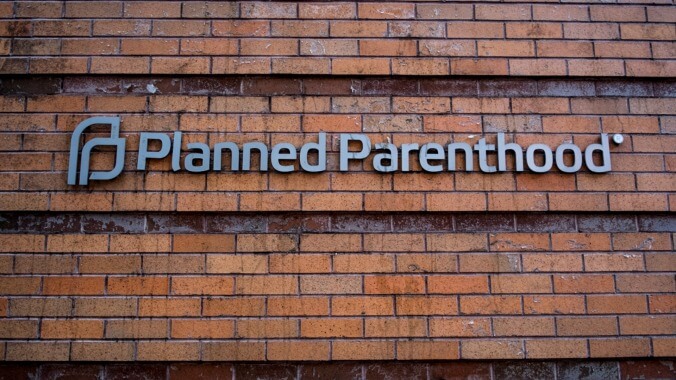The ‘WTF Is Happening’ Guide to the Planned Parenthood Case at the Supreme Court
Here’s everything you need to know about the South Carolina lawsuit that has national implications for birth control, STI testing, and more.
Photo: Getty Images AbortionPolitics
On Wednesday morning, the Supreme Court will hear arguments in Medina v. Planned Parenthood South Atlantic, a case about South Carolina’s attempt to exclude a Planned Parenthood affiliate from the state Medicaid program. If the court sides with South Carolina, it could lead to more states following suit and limiting people’s access to healthcare.
As an approved Medicaid provider, Planned Parenthood offers care including birth control, STI testing and treatment, and cancer screenings like Pap smears and breast exams to patients with that form of insurance. (The state already bans Medicaid from covering abortions in most circumstances, which is a bad policy, but providers follow the law—along with a state ban on abortion after six weeks of pregnancy.) But in 2018, South Carolina Gov. Henry McMaster (R) signed an executive order directing the state health department to declare abortion providers unqualified to participate in Medicaid because, he said, that “results in the subsidy of abortion.” PPSAT and a Medicaid patient named Julie Edwards sued the health department for violating her right to see any qualified provider.
The court agreed to hear the case in December, a few weeks after Donald Trump won the election, and a final ruling isn’t expected until late June, which is when the court releases its biggest decisions.
“The people in this state do not want their tax money to go to that organization,” McMaster said of Planned Parenthood. Sen. Lindsey Graham (R-S.C.) said in February, “Most Americans oppose their hard-earned tax dollars being used to subsidize abortion.”
Here’s what you need to know about the case and how Trump could turn a bad ruling national, with some help from Project 2025.
What exactly is the issue before the court?
The legal question in the case isn’t whether states can kick Planned Parenthood out of Medicaid, but rather if patients can sue states that do so in order to keep seeing the health care provider they trust. Edwards and PPSAT argue they can sue state officials in federal court under Section 1983 of a civil rights law that dates back to 1871.
The Medicaid Act has what’s known as a “free choice of provider” provision, which says that patients should be able to see any qualified Medicaid provider they want. Five circuit courts of appeals have said that private plaintiffs, including individuals and healthcare providers, can sue states to enforce that part of the Medicaid Act, while two other appeals courts have ruled that only the federal government can take Medicaid enforcement action against states. (This is known as a “circuit split,” and the Supreme Court typically weighs in to resolve the differing interpretations.)
Importantly, South Carolina didn’t disqualify Planned Parenthood because of concerns over professional competency, but rather because it offers abortion. The state wrote in a February brief: “PPSAT can restore Medicaid funding if it stops performing abortions—but it has chosen not to do so.”
Sure, but what’s the case really about?
It’s a longtime conservative goal to block any federal money from going to abortion providers, including Planned Parenthood. Activists refer to this effort as “defunding,” which is a misnomer. When people with Medicaid insurance choose to get care at Planned Parenthood, the program reimburses the organization for services provided. Contrary to the implication of the word “defund,” there’s no line item in the budget for Planned Parenthood. But anti-abortion advocates view targeting this funding source, and thereby depriving clinics of non-abortion patients, as a way to bankrupt and shutter clinics.
-

-

-

-

-

-

-

-

-

-

-

-

-

-

-

-

-

-

-

-

-

-

-

-

-

-

-

-

-

-

-

-

-

-

-

-

-

-

-

-








































